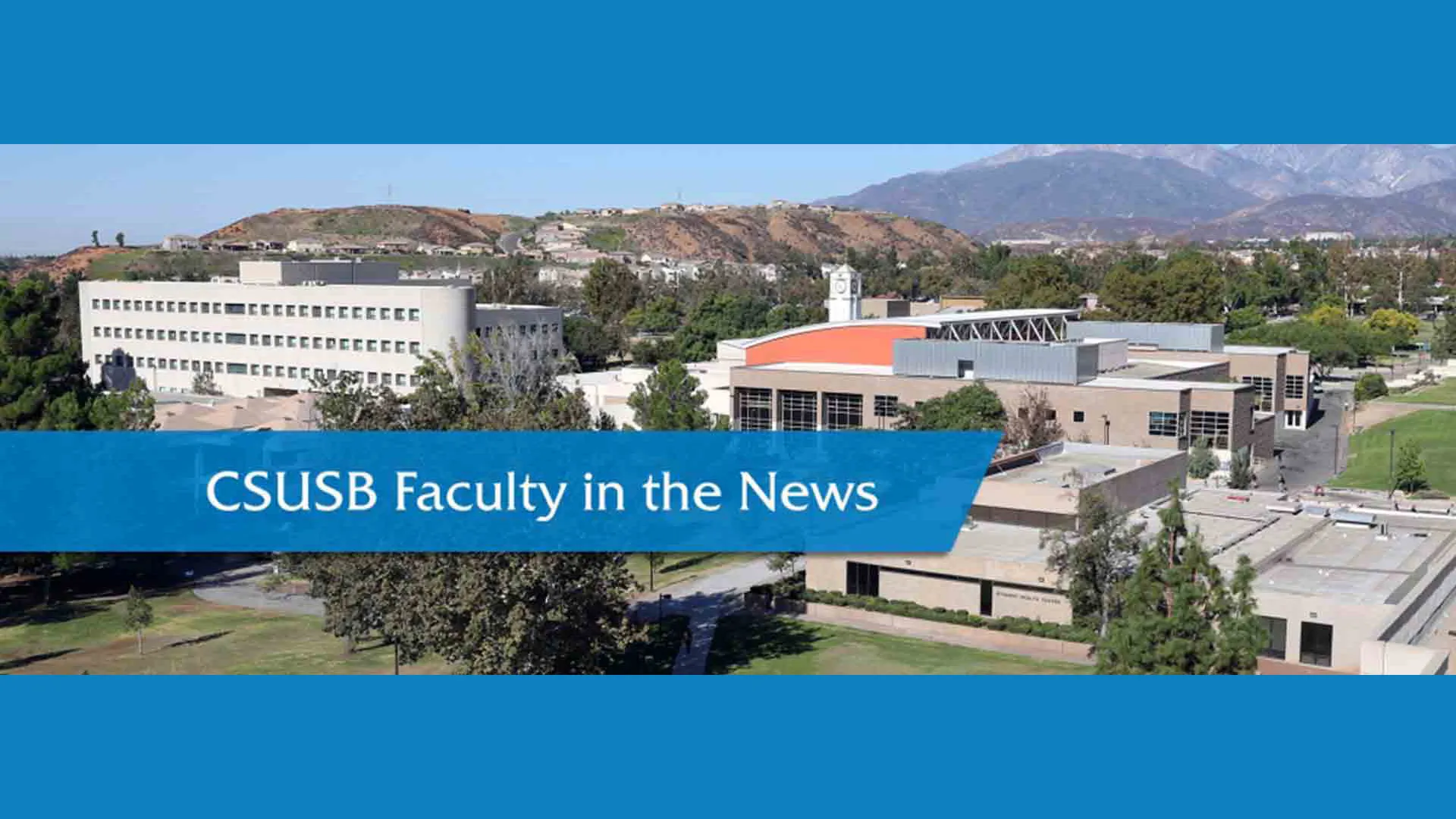NOTE: Faculty, if you are interviewed and quoted by news media, or if your work has been cited, and you have an online link to the article or video, please let us know. Contact us at news@csusb.edu.
Leaders should be prepared for the possibility of different kinds of violence in the future by right-wing extremists, CSUSB professor says
Facing South
Jan. 29, 2021
No protestors fired guns at the Capitol Hill riot on Jan. 6, but several participants are facing gun charges for having them on the day of the siege in Washington, D.C., where it is illegal to openly carry a firearm. And while the rioters at the Capitol varied ideologically, from QAnon conspiracy theorists to anti-vaxxers to militia types, some of them were Second Amendment insurrectionists, according to Brian Levin, the director of the Center for the Study of Hate and Extremism at California State University, San Bernardino. They interpret the provision to mean citizens have access to firearms in order to resist a tyrannical government.
"They cross-pollinate their idiosyncratic and ideological anger and it mutates," Levin said.
He also said leaders should be prepared for the possibility of different kinds of violence in the future, including infrastructure attacks and plots that attempt massacres. And in another effort to address the threat, Biden's newly confirmed Defense Secretary Lloyd Austin has promised to purge the military's ranks of "racists and extremists" — a task made even more urgent by NPR's finding that 1 in 5 people arrested in connection with the Capitol riot served in the military.
For now, former President Trump's rhetoric that inspired his supporters to attack the U.S. Capitol has been constrained by social media companies and by his loss of access to the presidency's bully pulpit. But, Levin says, the spreading of falsehoods by other political leaders continues and needs to be addressed by their colleagues across the ideological spectrum.
"You don't have to abandon principled conservative positions to use the bully pulpit to decry violence and promote democracy," Levin observed. "Southern politicians should do that and distance themselves from any whiff of bigotry or anti-Democratic conspiracizing."
Read the complete article at “Biden administration confronts far-right extremist threat.”
CSUSB professor interviewed about federal authorities’ warning of further violence by domestic extremists
KNX Radio (Los Angeles)
Feb. 1, 2021
A segment about a national terrorism advisory system warning about the increasing threat of violence by domestic terror groups included an interview with Brian Levin, director of CSUSB’s Center for the Study of Hate and Extremism.
Levin said the warning is unusual because, despite evidence of right-wing extremism building in the nation was not mentioned in any previous warnings to Congress or the nation as a whole.
“Some of this is a bit of catch-up, and I think the other part of this is that we are in a time of a new insurgency on the hard right, not people of goodwill who are conservatives, but on the militant and conspiratorial hard right,” Levin said.
Suspect’s affiliation with right-wing extremist group discussed by CSUSB professor
Los Angeles Times
Jan. 29,2021
Brian Levin, director of CSUSB’s Center for the Study of Hate and Extremism, was quoted in an article about the Napa man linked to a far-right extremist group who is accused of plotting to kill Gov. Gavin Newsom.
In court Friday, a Napa County prosecutor said auto repair shop owner Ian Rogers built five large pipe bombs, possessed machine guns and extensive body armor, used encrypted communications to chat with like-minded extremists and is “part of the [right-wing] group that does call itself the Three Percenters.”
The Three Percenters, according to Brian Levin, director of the Center for the Study of Hate and Extremism at Cal State San Bernardino, are “2nd Amendment insurrectionists” whose members “maintain when the government acts tyrannical, they have a subjective right to armed rebellion.”
Read the complete article at “Extremist accused of plotting to attack Newsom: A dangerous Nazi sympathizer or a ‘mouthy drunk’?”
CSUSB professor interviewed about latest developments over nuclear agreement with Iran
Press TV
Feb. 1, 2021
David Yaghoubian, CSUSB professor of history, was interviewed for a segment where he discussed the Iranian parliament’s move to promote “strategic enrichment” to motivate the United States and the European Union signatories to live up to their obligations under the 2015 multinational agreement regulating Iran’s nuclear program.
“This is a calibrated reaction to the continued, let’s say, inability or unwillingness of the signatories of the JCPOA (the Joint Comprehensive Plan of Action), including the Europeans, to provide Iran with the benefits that it signed up for within the agreement,” Yaghoubian said.
The Trump administration pulled the U.S. out of the JCPOA in 2018, saying it wanted a stronger deal, and imposed sanctions on Iran when it did not want to return to the negotiation table. The Biden administration has signaled that it wants to return the U.S. to the agreement.
See the online interview at “Iran provides IAEA with detailed report on its nuclear energy program.”
These news clips and others may be viewed at “In the Headlines.”
